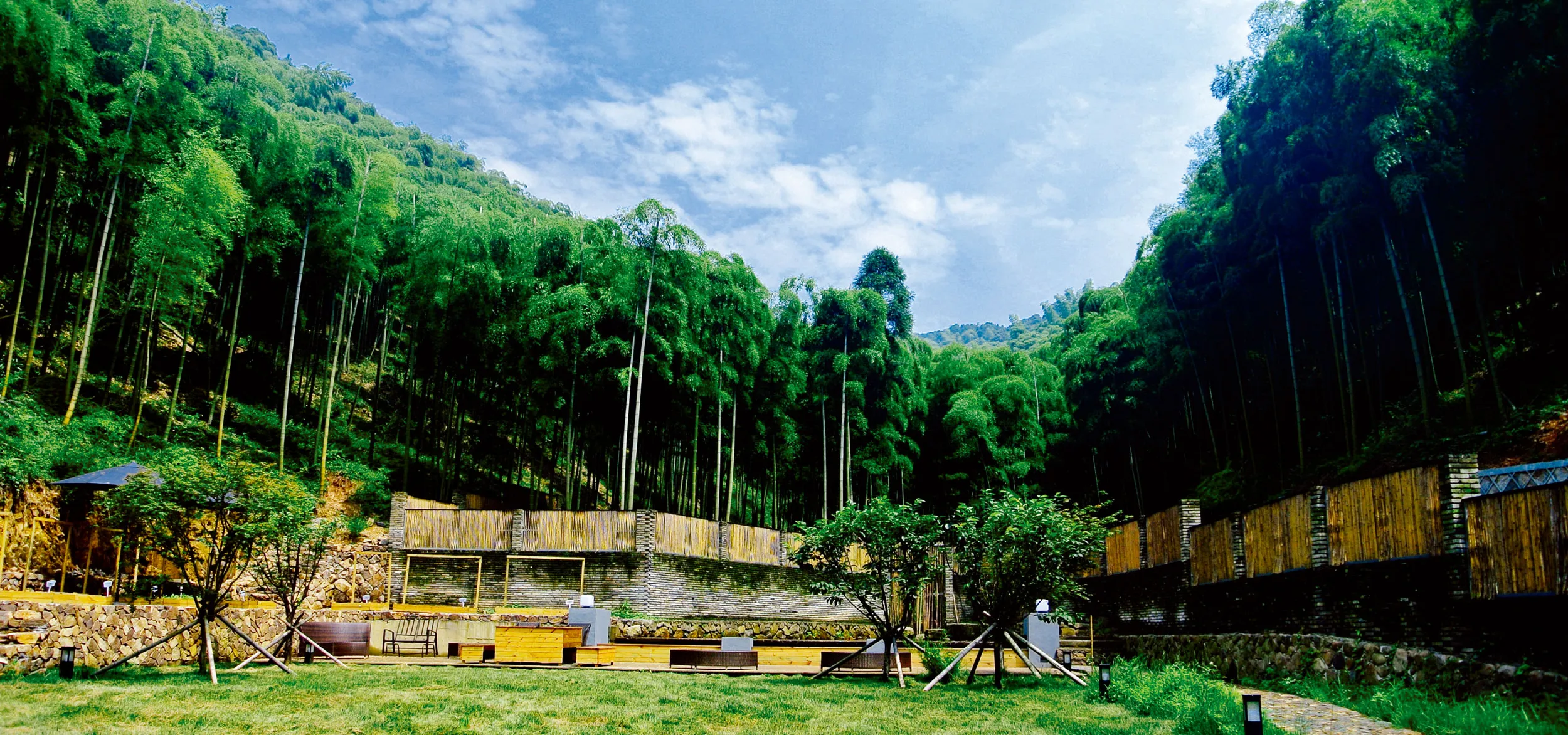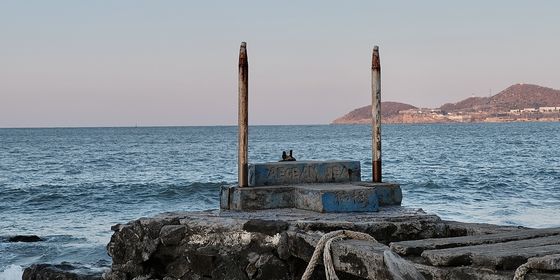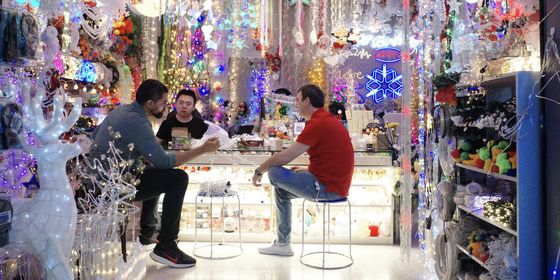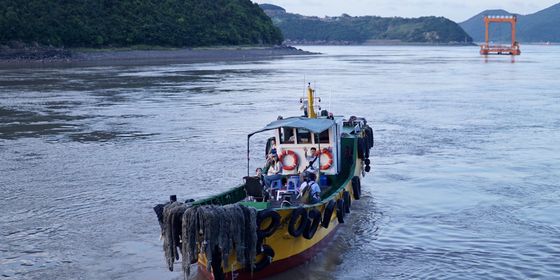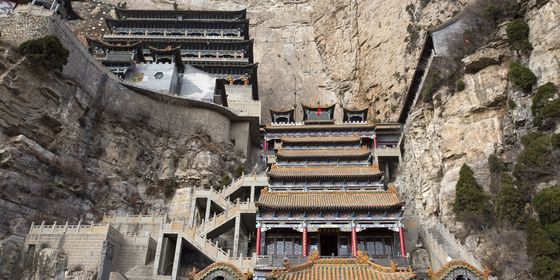Escape from the hurly-burly of Hangzhou and Shanghai for peace in Dongshen village
A well-loved and increasingly well-heeled weekend destination for city dwellers in Shanghai, Hangzhou, and beyond, Deqing County—home to the hallowed Mogan Mountain Forest National Park (莫干山国家森林公园)—is a bucolic land of lush green hills, swaying bamboo clusters, hidden farmhouses, and, crucially, peace and quiet. Let’s face it, living in one of the most densely populated urban regions on earth (as many of us thumbing through this magazine do) can be one hell of a noisy ride, so it’s only natural to seek solitude and silence at least a couple of times a year, which is where much of Mogan Mountain’s enduring appeal comes into play.
With a smorgasbord of accommodation options spread throughout Mogan Mountain’s misty peaks and, indeed, further afield throughout Deqing county’s handsome lanes and fragrant valleys, you’re sure to find lodgings that suit you and your family’s needs no matter your budget. But, the reasonably priced Walden Resort is particularly recommended. Opened in 2016, Walden Resort is the prefect synthesis of urbane comfort, modernity, and rural simplicity. The resort’s Chinese name, 溪上, translates to “above the creek,” a reference to the free-flowing Panxi River (盘溪) that lies directly at the resort’s feet; the English name, obviously, pays homage to Henry David Thoreau’s ode to living a simple, natural life in the bosom of nature.
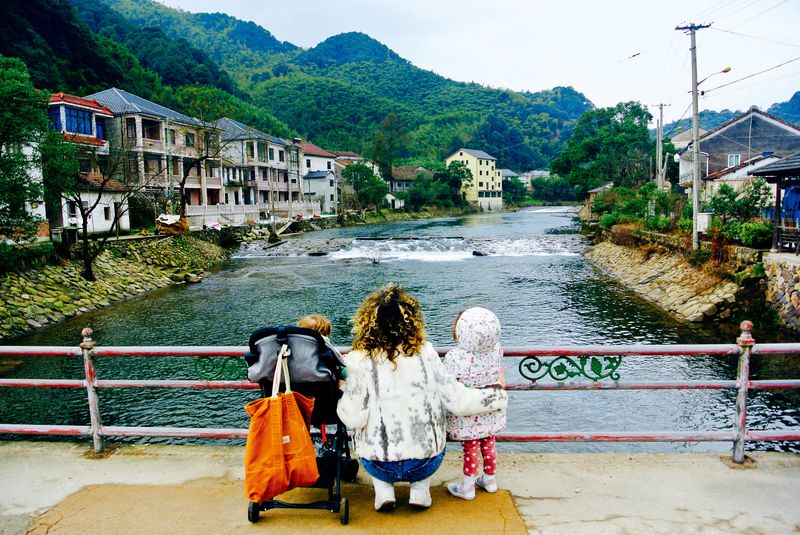
Overlooking Panxi River
Driving through Deqing’s shiny peaks and verdant valleys, the pressures and distractions of the city fall away with each passing kilometer; the roads become narrower, the houses fewer and further between, and the hills grow more imposing as you wind your way through bucolic, steamy countryside. Eventually, if you’re Walden Resort-bound, you end up following the aforementioned Panxi River, hugging it all the way to Dongshen village.
Situated around 30 minutes away from Mogan Mountain’s more popular resort and restaurant-filled “town center” (for want of a better term), and traversed by the Panxi River, Dongshen village is an interesting place to explore. It’s full of smiling locals, sky-high piles of bamboo, sunbathing farm dogs, and more. There’s no sign of gentrification here, unlike in other, more laowai-friendly parts of the wider Mogan Mountain region. The closest you’ll get to a vanilla latte is a bottle of sweet milk tea, but that’s what makes this location great: It’s as authentic as it gets, and local life around the village goes on without fuss or fanfare.
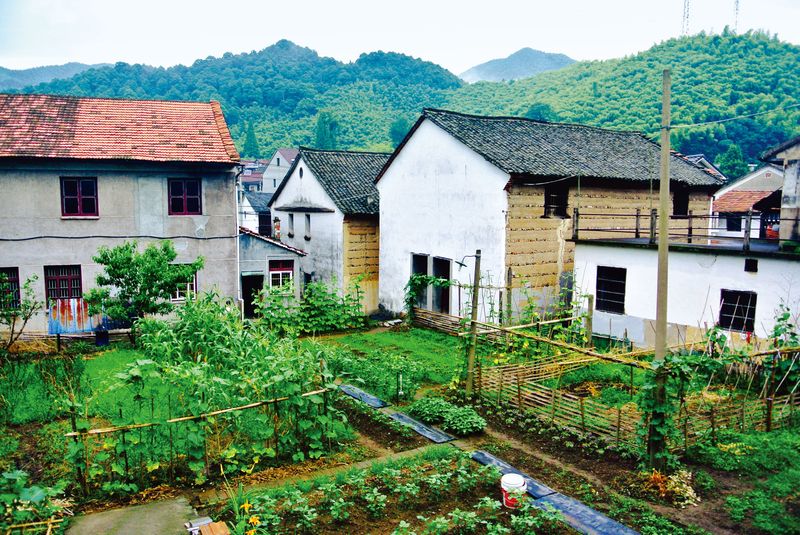
A typical Dongshen village farmer’s yard
Some city dwellers looking for 48 hours or so out of the big smoke choose to simply sit back and put their feet up with a nice book and a steaming mug of green tea. But, peace and tranquility is not in the cards for those of us with kids, so it’s best to keep moving. Besides, who wants to sit inside when outside there is so much to see, do, and, perhaps most importantly, so much to eat?
Food, Glorious Food
Twenty minutes after asking the staff at the Walden where I could find a hearty farmer’s lunch, I was being welcomed into the home of a jolly Dongshen village granny who merrily prepared us a meal of seasonal and locally grown vegetables, potatoes, and pork in her homey, farm-style kitchen overlooking a small vegetable patch. The home of our host was actually her shop, as the hospitable laolao’s kitchen was located at the back of a ramshackle local store. Upon entering, a wooden table was hastily erected amidst the jam-packed and colorful bazaar—carrying everything from traditional douli hats to battery-operated Xi Yangyang dolls—and soon filled with glasses of boiling tea, chopsticks, and the obligatory box of tissues.
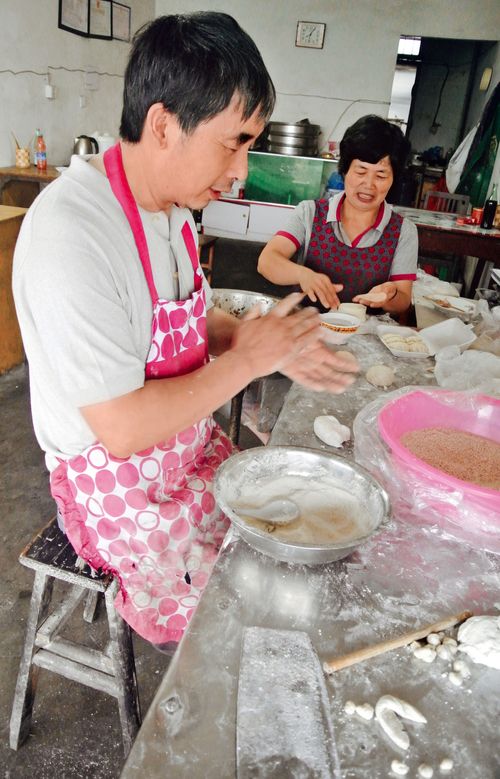
A Dongshen village couple make dumplings
As we sat awaiting our meal, doing our best to converse with the gaggle of curious family members and locals who sat down for a quick chat, our silver-haired hostess busied herself at the giant fixed-wok at the shop’s rear, in a small kitchenette that contained some lovely looking traditional Jiangnan-style cooking apparatuses. To fuel the fire, from time to time she fed dried shards of bamboo into a stove positioned below the wok, sitting atop what seemed like the world’s tiniest wooden stool. Beyond the kitchen, the vegetable patch was sprayed by a fine, cold winter drizzle as the brooding Deqing mountains glistened beyond.
As one might expect from such a modest scene, the meal served was simple and made from local ingredients: no fancy-pants fusion or bacon-and-egg-flavored ice cream, but honest fare that pleased our palates and sated our appetites. Between sips of local beer we feasted on a handful of colorful dishes that included green beans sautéed in garlic and chili, sprinkled with flecks of succulent pork; canary yellow scrambled egg fried with shallots, onion, and garlic; sliced bamboo sautéed with garlic and some kind of tangy, pickled vegetable (for what is Chinese cuisine without mystery?); and deliciously fluffy fried potatoes with shallots, garlic, and a little chili. The food was both hearty and nuanced, well-balanced in flavors, and the whole experience was enhanced by the surroundings and the experience as well as the preparation, which felt off-the-cuff and genuine. If food for the soul can be made, it is made in Jiangnan.
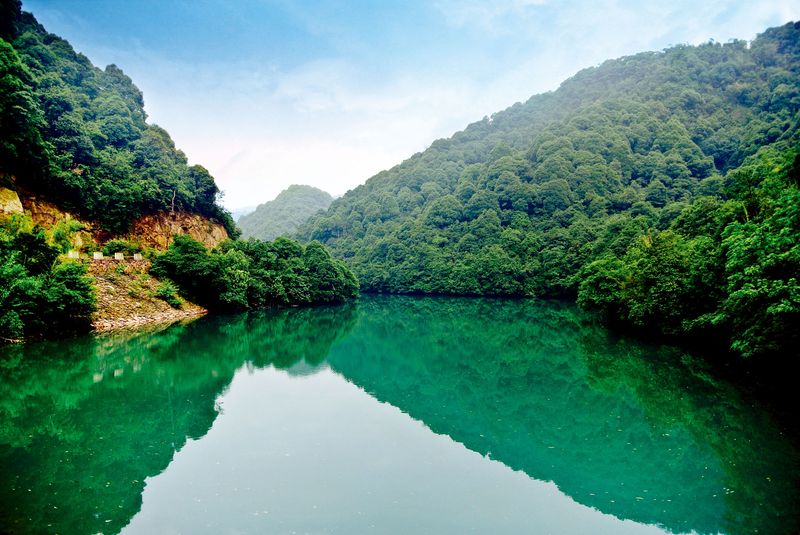
One of Deqing county’s many small lakes
Joining us for dinner was a local huntsman named Mr. Shi, a man who spins yarns about his hunting exploits and culinary expertise. “Some people hunt for money,” he tells us as we gorge ourselves, “but I just hunt for sport.” Not short of confidence, Mr. Shi boasts without a hint of modesty that he is the best hunter (and cook) in the village. “It’s true,” says our host with a wink. After dinner we stroll along the Panxi River’s peaceful banks in search of a pleasant place to sit.
Dongshen village is the kind of place that, before the concrete can dry, chickens and dogs leave their dainty footprints along the newly paved ground. As you wander around the village’s whitewashed streets, the outside world’s nagging concerns seem to melt away in the early evening breeze.
Along the river, a sheltered seating area is packed with locals playing Chinese chess and mahjong, or otherwise just chewing that fat. They eye their foreign guests with amusement and puzzlement in equal measure. As dusk falls, the sky is ripped open by patches of brilliant orange as a gaggle of boisterous ducks flap noisily down Panxi’s banks. Heading back to the hotel on foot, we paused at the river to drink in the ambience and reflect on the magic of Dongshen and on the marvelous feast we enjoyed courtesy of the welcoming, warmhearted locals.
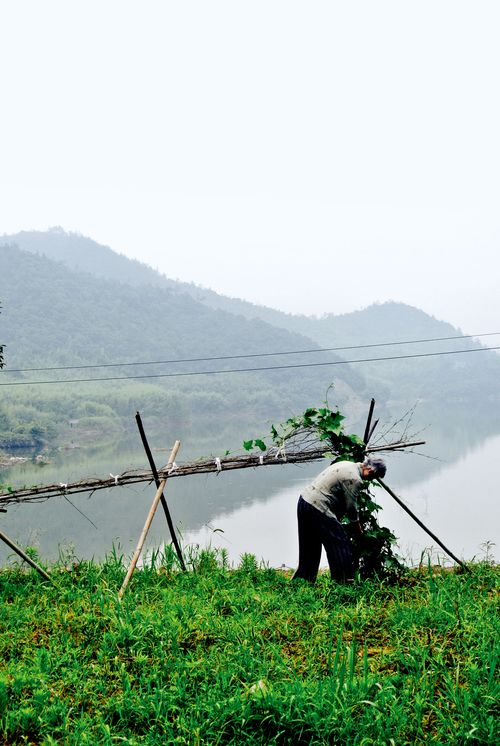
An elderly local woman busies herself with her daily chores
Back at Walden, a man who, judging by his attire, appears to be an off-duty cop, prepares us a simple supper of fresh egg-and-tomato noodle soup. And when I say fresh I mean fresh: he made the noodles right there and then, allowing my curious children to get involved with the fun. Needless to say, by the time the noodles were ready, everyone was covered head-to-toe in flour, but it was well worth it to be treated to such an experience.
Getting Around The Old Town
With your gut full of excellent Jiangnan cuisine, you’re going to need to work off some of that food. For early risers, a good bet is to start by taking a short car or cab ride to Dongshen’s old street, where there’s a lively market. The buildings here still contain historical details that speak to their cultural value. One of the most popular and time-honored breakfast joints along this stretch is a humble noodle place run by a jovial shirtless man wrapped in a yellowing apron. “My ancestors made noodles here,” he says, his face disappearing in plumes of hot steam that rise from the fresh noodles and fragrant broth below. “I do the same. Now sit down and eat!”
Opened in the 1930s, this nameless noodle bar does brisk business, and with food this good it’s not hard to see why. The noodles are served with fragrant seaweed and little else, barring the optional slug of vinegar or a dash of chili, and they are all the better for it. Most customers eat al fresco in the early morning sun, but a handful of patrons sit inside beneath faded technicolor posters of Chairman Mao. Elsewhere on the street couples sit folding dumplings for the lunch-hour rush as grannies pick through piles of freshly plucked cabbage.
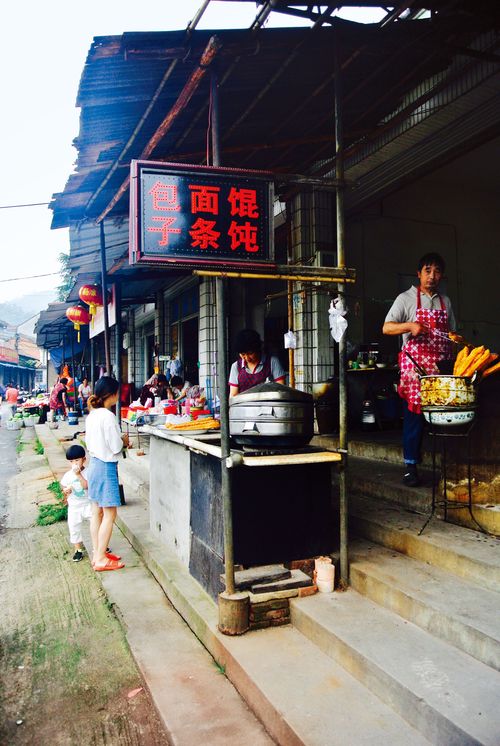
Breakfast time on an old street
Another site worth visiting while in the area is the eerily quiet and quirky Zhenjue Temple (真觉寺), a place of worship hidden in a seldom-visited corner of Deqing. Here, monk Xingkong lives his days in relative solitude with only a pack of local dogs to keep him company. It’s probably the only temple in the province where the canine population outnumbers the monks. “Being alone gives me great pleasure,” he says as he gives us a tour of his own private Xanadu, dogs in tow. Xingkong came to the area 14 years ago and poured his life savings into building the temple. Humble but blessed with gorgeous surroundings, including a tidy vegetable garden and hidden hiking trails, the temple is a genuine oddity and a real labor of love for the resident monk and his gaggle of furry companions.
For those wanting a weekend getaway from the beeping and buzzing of one of the busiest metropolises in China, there is perhaps no better place than Deqing. From the rustic, livable ambience of the Walden and the local fare, to the noodles of old town and the monk followed by a pack of dogs, Deqing seems like a world apart.
Delving Into Deqing is a story from our issue, “Wildest Fantasy.” To read the entire issue, become a subscriber and receive the full magazine.





